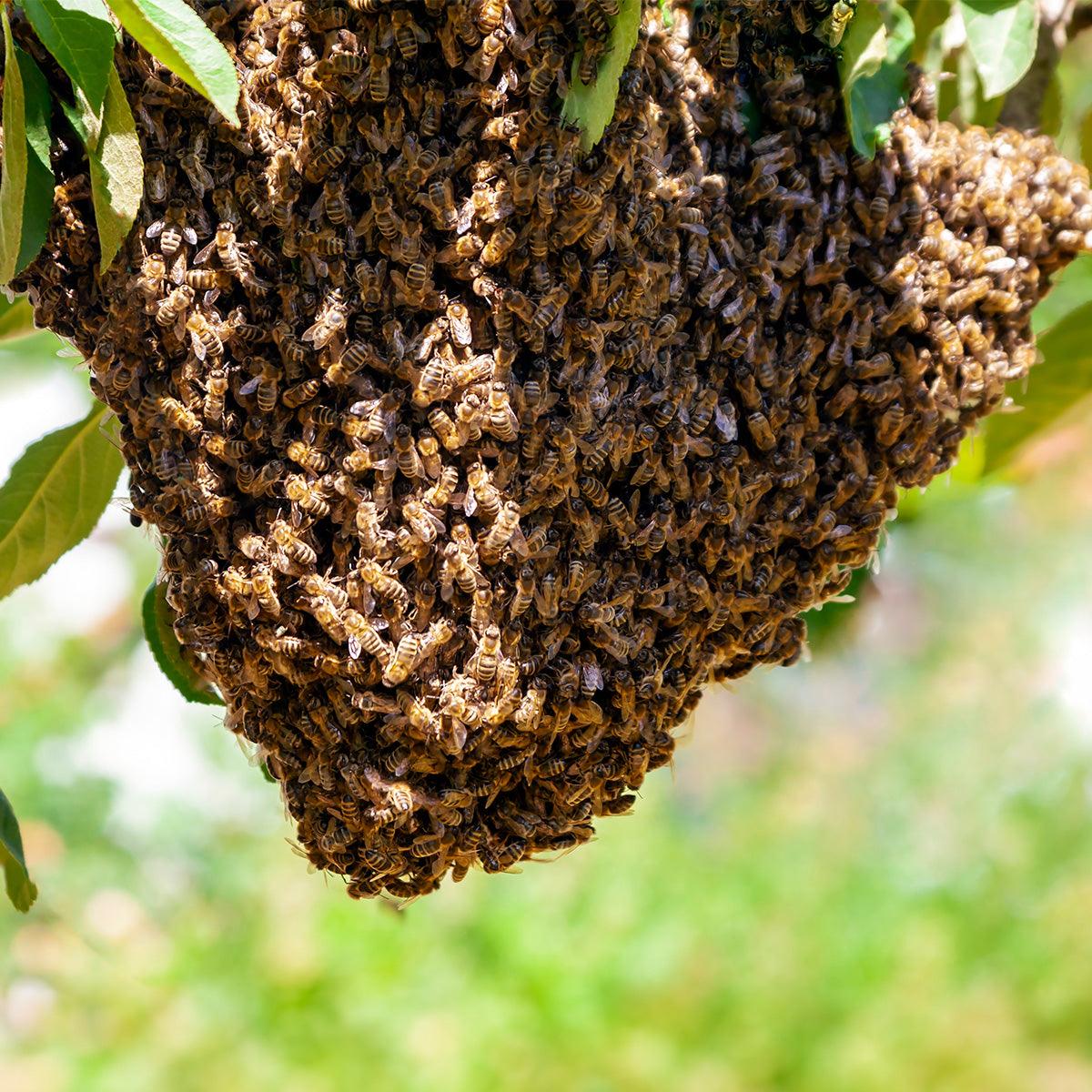Springtime brings about the season of new life, lambs in the field, and new leaves and flowers, and one of the most awe-inspiring spring sights is witnessing a swarm of bees. While the sight of thousands of bees in flight may seem alarming to some, encountering a swarm doesn't have to be a cause for panic. In fact, swarming is a natural and crucial part of the honeybee life cycle and is generally a peaceful and spectacular, but short event. Here's what you should do if you encounter a swarm of bees:
1. Stay Calm: The most important thing to remember if you encounter a swarm of bees is to stay calm. Bees are typically not aggressive when swarming, as their primary focus is on finding a new home for their colony. Nonetheless it`s always good to avoid making sudden movements or loud noises that could startle the bees.
2. Keep Your Distance: While swarming bees are generally not aggressive, it's still important to keep a safe distance from the swarm. Give the bees plenty of space to cluster together and do not attempt to disturb or agitate them.
3. Do Not Swat or Spray: Resist the urge to swipe at the bees or spray them with insecticides. Swatting or spraying can agitate the bees and provoke defensive behaviour. Remember, bees are valuable pollinators and play a crucial role in our ecosystem. This is just them trying to move house and raise a new colony.
4. Contact a Beekeeper: If the swarm has settled, contact a local beekeeper or bee removal service for assistance. Experienced beekeepers have the knowledge and equipment to safely capture and relocate swarms without harming the bees. This is a great opportunity for many beekeepers to start a new hive, so many will be really pleased to assist. The BBKA website has details of local beekeepers, which you can find here. Alternatively, put a post on your local community Facebook page asking to be put in touch with a local beekeeper, this can sometimes be faster!
5. Observe from Afar: If the swarm has settled in a relatively safe location, such as on a tree branch or fence post away from a busy location, you can bring a chair and a cup of tea (or some chilled, sparkling mead!) and safely observe the bees from a distance. Swarming bees are mesmerising to watch and can provide valuable insights into the fascinating world of bee behaviour. Some compare them to shoals of fish or a murmuration of Starlings in the way they move in synchronisation with each other.
6. Learn About Swarming: Take the opportunity to learn more about the swarming behaviour of honeybees. Swarming is a natural process by which honeybee colonies reproduce and can be a sign of a healthy and thriving bee population. Educating yourself about swarming can help dispel fears and misconceptions about bees. Feel privileged to witness such an amazing natural phenomenon.
7. Spread Awareness: Use your encounter with a swarm of bees as an opportunity to raise awareness about the importance of bees and the need for their conservation. Bees are essential pollinators that play a vital role in our food supply and ecosystem health. By spreading awareness and understanding, we can all work together to protect and support bee populations.
Encountering a swarm of bees can be a remarkable and educational experience if approached with caution and respect. By staying calm, keeping your distance, and seeking assistance from experienced beekeepers when necessary, you can safely coexist with these remarkable creatures and appreciate the vital role they play in our world.







Share: